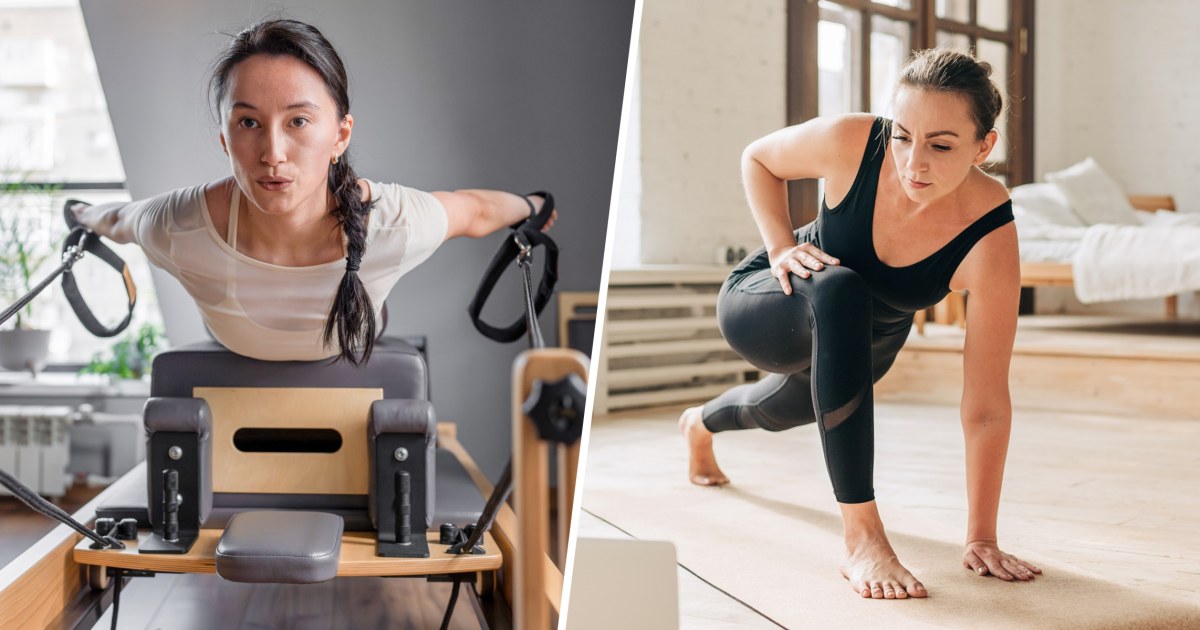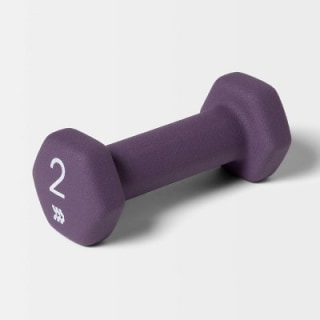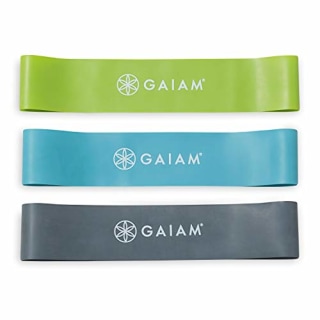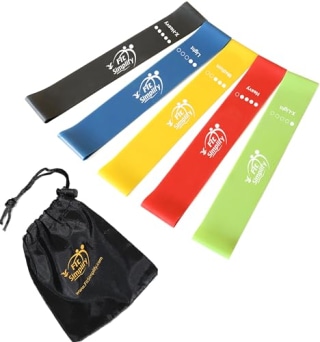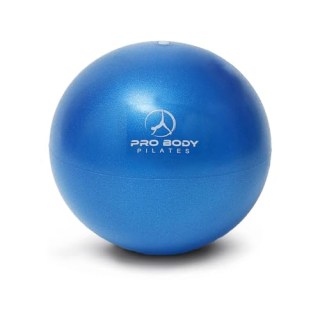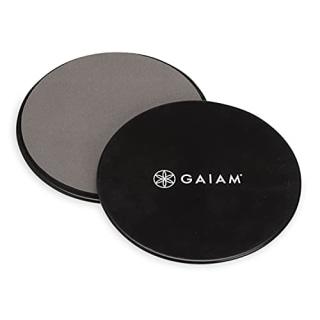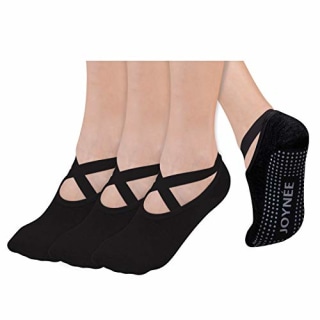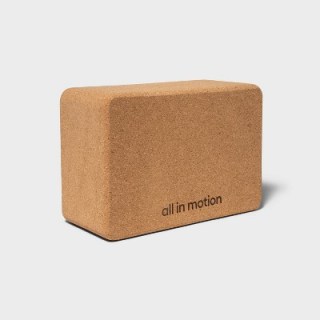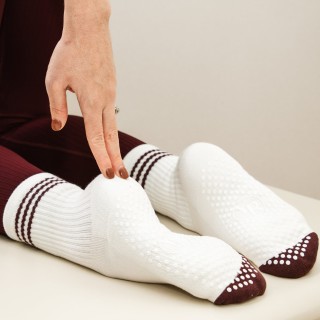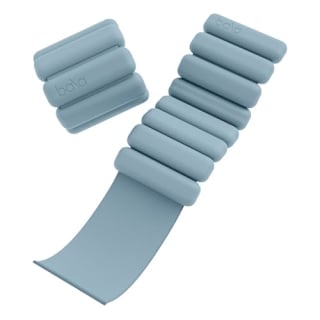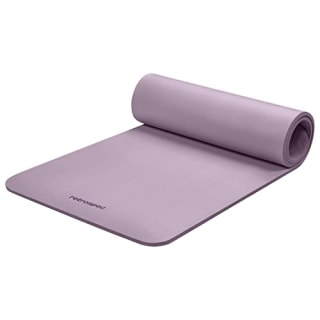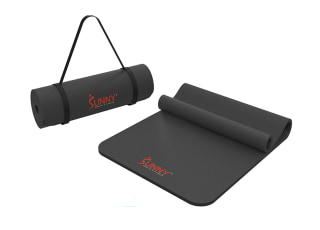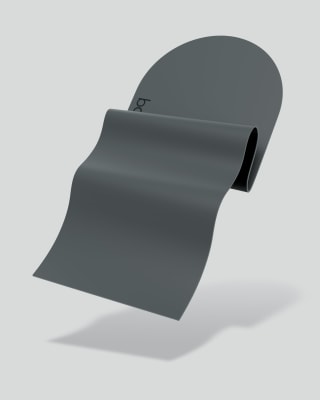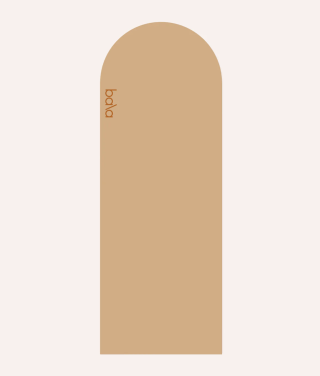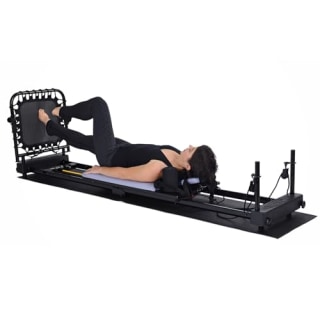Pilates has been around for over a century, but if you haven’t noticed, the trendy, low-impact (yet difficult) workout has seen a huge resurgence lately. In fact, according to Google Trends, search interest has reached an all-time high in 2025 — highest in the last five years.
And there’s good reason for its popularity, fitness experts tell Shop TODAY that Pilates is extremely accessible and a good workout for all levels and ages. The practice also offers different methods and variations, such as classic mat or reformer.
For beginners, reformer Pilates might look intimidating; however, experts say anyone could do it. But what’s the difference between the reformer and mat? Keep reading to learn the benefits of the two types and how you can do this workout right at home.
Our top picksBest at-home Pilates equipment
See 4 MoreWhat are the benefits of Pilates?
Pilates is a full mind-body workout that builds physical strength and flexibility, as well as focusing on breath awareness, says Pilates instructor and studio founder Kate Davies Durand. She explains that since it moves at a slow pace, it’s suitable for “all levels, ages and physical conditions, including pregnancy.”
And most importantly, it builds deep core strength, which Pilates instructor Megan Dillon says is the foundation of how your body connects and moves. “Pilates helps you stand taller and move with more ease. And because it’s gentle on your joints, it’s perfect if you’re juggling a busy life, sitting at a desk all day or just want to feel a little more put together in your body,” adds Dillon.
What’s the difference between mat and reformer Pilates?Mat Pilates
While both options provide an epic burn and a good workout, there are differences between the practices. For instance, a mat Pilates session is done on the floor and can be done typically anywhere and with minimal to no equipment. To add resistance, Durand says you can use a variety of at-home props, including hand weights, a Pilates ball or a ring.
Dillion recommends that total beginners start with mat Pilates, so that they can feel confident enough to get the most out of a reformer class. “Mat is ideal for anyone wanting to build a solid foundation, improve control and alignment, or get a killer workout using just your body,” she says.
Reformer Pilates is done on a reformer machine that’s made up of adjustable springs, a platform and more advanced options can include arm and leg straps, a footbar or a jumpboard. Dillon says it’s best for people who are looking for more variety, resistance and support in their movement.
“It’s amazing for building strength, working through imbalances or deepening your practice with more feedback from the springs and straps,” says Dillon. While she recommends it for more intermediate levels, she assures that any level can do it with a good teacher and a good mat foundation. Also, Durand mentions that if you’re expecting, reformer Pilates is easier for pregnant bodies.
“Both options are wonderful, so choose what’s available and what you enjoy because that’s what you’ll stick with,” says Durand. And while a group Pilates class is fun and inspiring, you can do the workout right at home. Below, we’re highlighting everything you need for your at-home routine, including expert and Pilates-loving editor picks.
These affordable dumbbells come in multiple weight levels to tone arms, chest and shoulders.
Weight levels: 2, 3, 5, 6, 8, 12, 15, 20 lbs. | Length: 5.5 inches
What we like
Non-slip gripVariety of weight levels
A lightweight set of weights might not seem much at first, but you’ll feel a burn during repetitive movements or added resistance for crunches.
Coming in a set of three, this pack of resistance bands has light, medium and heavy resistance levels, and the brand recommends using each to enhance lower leg and glute exercises.
Amount: 3 | Resistance levels: Light, medium, heavy
What we like
Durable and well-madeVarying resistance levels
Something to note
Some say they tend to roll up
Dillon says she loves using a mini resistance band to “fire up your outer thighs” during routines.
These resistant bands come in a pack of five, each with different levels of resistance.
Colorways: 7 | Count: 5 bands
What we like
Color-coded by resistanceSturdy and doesn’t roll up
Deputy editorial director Ali Deabler says she’s been using these resistance bands for a few years now, and even if they start to show wear, they’re super affordable to replace.
This versatile ball can be used for a variety of strength exercises, as well as support and recovery, says the brand.
Size: 9 in. | Colors: 7
What we like
DurableAnti-slip material
“I love a small ball; it’s perfect for targeting your inner thighs and abs. This ball changed my abs,” says Dillon. A game-changing routine she likes is placing the ball between your shoulder blades, while curling up and down the chest.
Deabler also likes using this ball when she experiences neck fatigue or for lower back support during core strengthening.
These sliders help activate and target muscles for the whole body. The dual-sided design allows you to use them on the carpet or hard flooring.
Size: 7 in. | Amount: 2
What we like
LightweightCan use on different flooring
Something to note
Mixed reviews on gliding ease
If you ever take an in-studio mat Pilates class, you might be familiar with these discs. According to the brand, you can add them to your at-home routine to increase stability and strengthen muscles. Editor Vivien Moon has a similar pair at home, which she uses on days she doesn’t have the energy to go to an in-person class but wants to get some exercising in.
Coming in a pack of three, these affordable pilates socks are designed with many non-slip dots to keep you stable during your workouts.
Sizes: One size | Colors/styles: 6
What we like
High elastic strapsVery grippy, per reviews
Grip socks help with exercises that include sliding discs, as they help provide an added element of stability and are popular for reformer classes where the bar is utilized. Reviewers say these socks stay formed to your foot, allowing you to stay secure in Pilates, yoga or barre workouts.
This yoga block can be used for your yoga practice, pilates or other low impact exercises to help stabilize poses or offer support.
Size: 6″(H) x 9″(W) x 4″(D) | Weight : 2.5 lbs.
What we like
Slip-resistant materialsEasy to grip
Deabler also says she likes a yoga block to help with neck and lower back support.
These grip socks have a crew design and offer arch compression to help you feel supported during Pilates reformer, yoga or Barre classes.
Size: S-L | Colors: 16 | Style: Crew
What we like
Good grip solesCompression arch
“I’ve been going to Pilates classes for nearly 10 years so I’ve had a lot of socks over the years and what I’ve come to know is that you don’t need the most expensive or fanciest pair to take classes and get the most from your work out,” says Moon. “I find myself reaching for them more often since I can throw on my sneakers and still go about my day after the class.”
These weights can be strapped to your ankles or wrists to increase resistance in workouts and daily activities.
Weight levels: 1, 2 and 3 lbs. | Colors: 5
What we like
Keeps hands freeComfortable to wear
Something to note
Velcro can wear down/pop off
Multiple editors, including myself, love incorporating Bala Bangles in their Pilates routines. You may have even seen them used in your local in-studio classes. “They’re lightweight enough that you don’t feel it at first, but with repetitive movement, that little bit of added resistance adds up,” says Moon.
The brand says this mat is designed with double-sided non-slip materials. Plus, it comes with a carrying strap.
Size: 72″ x 24″ | Colors: 9
What we like
Good qualityNice cushion, per reviews
If you’re new to Pilates, you don’t have to splurge on a high-end mat; this affordable option provides cushion and non-slip materials.
This extra-thick yoga mat provides a half-inch of cushion to provide comfort and added support during workouts.
Size: 74″L x 24″W x 0.5″D | Colors: 3
What we like
CushionedStrap for easy carrying
If you need extra comfort for your hands, wrists or joints, you can opt for this extra-thick mat that has more cushion than your average yoga mat.
This yoga mat has a “first-of-its-kind” design and is made with anti-microbial materials, says the brand.
Size: 71.375” x 26.5” | Colors : 3
What we like
Easy to cleanQuality madeNon-slip and water-proof
“I’ve tried a ton of yoga mats in my life, and this one is definitely one of my favorites. Not only is it waterproof and non-slip, but the sizing and curved top is ideal for my type of workouts,” says commerce editor and producer Julie Ricevuto. “Plus, I was worried it would be too thin, but the thickness is perfect — it feels sturdy without being too hefty.
Winner for: “Best athletic investment”
Size: 26″ x 71″ | Colors: 5
“The Lululemon yoga mat is the best athletic investment I’ve ever made. I’ve had it for about five years now, and it has ruined every other yoga mat for me. The 5mm is the perfect amount of cushioning, so I don’t feel like I’m on a hard floor, but it also doesn’t feel too squishy either,” says senior social media editor Kate McCarthy.
Expert-approved Pilates reformers to shop
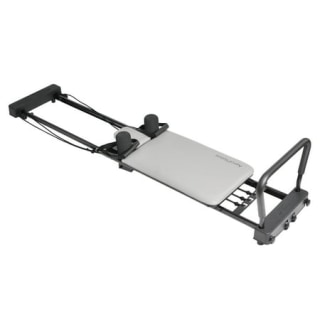
The first thing you’ll notice about this reformer is that it sits on the ground, which should eliminate any worries about losing balance and potentially falling. The platform and foot bar are both padded for extra comfort, and the shoulder pads are made with dense foam.
Weight capacity: 300 lbs. | What’s included: Three adjustable bungee cords
What we like
FoldeableNon-kid supports
Something to note
Some say platform can stick
Barry’s instructor, Robyn Williams, previously told Shop TODAY that this at-home reformer has a simple design, making it beginner-friendly.
There’s no need to give up prime real estate in your home for a reformer — this one from AeroPilates folds right up for easy storage.
Weight capacity: 300 lbs. | Includes: Floor mat, four workout videos
What we like
Adjustable headrestFolds for easy storage
Williams says you can do your routine in the safe space of your own home, without it taking up much room.
Frequently Asked Questions
Who shouldn’t do Pilates?
Both instructors agree that anyone can do both types of Pilates because it’s both accessible and adaptable. However, Dillon notes that if you have a serious or chronic medical condition, you should consult your doctor first.
Meet our expertsMegan Dillon is a Pilates & Barre instructor at Physique 57 in New York City.Kate Davies Durand is a yoga and Pilates instructor and the founder and director of YO BK in New York City.Robyn Williams is a Barry’s instructor based in New York City.How we chose
To compile our list of the best Pilates equipment and reformers, Shop TODAY interviewed experts in fitness to share the benefits of Pilates. We also included editor and shopper picks to complete the list, and we always prioritize positive user reviews and feedback.

